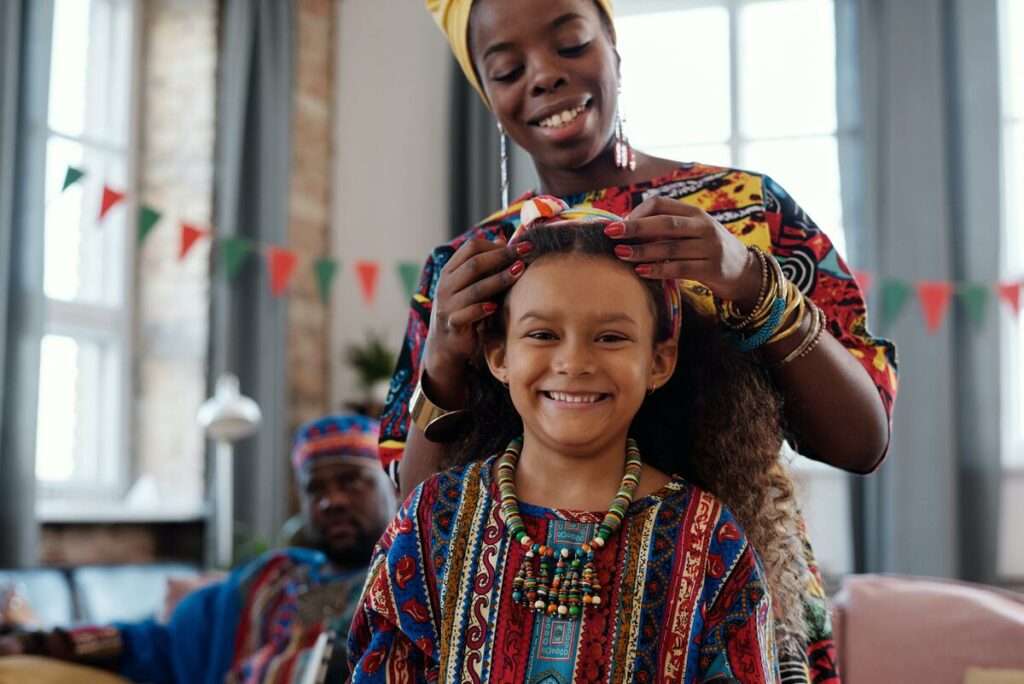The importance of maintaining our rich cultural heritage has become a wake-up bell that calls for the review of some African Country cultures that offer value and give real essence to life. From its inception, Africa has been a home known for its many unique African Country cultures, with qualitative identities worth writing about. In an ever-evolving age of civilization, many African countries may be posed with the threat of losing their cultural heritage to modernization, which may be disastrous to the moral and social values of the forthcoming generation.
With cultural heritage being an integral part of human reality, it is of utmost importance to highlight the cultural values and etiquette that are relevant to the civilization of the present time. Throughout history, Africa has had an increased sense of cultural values and etiquette worthy of mention, as well as reinforcement of such values where its practices are lost.
In this article, I’ve highlighted three top African Country cultures you should know about. Perhaps you may be inspired to select some remarkable qualities acceptable for your civic disposition.
Table of Contents
3 Unique African Country Cultures You Should Know About
Kenyan Culture
Kenya, a country that obtained independence in 1963 is known for its strong and uncompromised cultural values evenly expressed in hospitality, industriousness, respect, diversity, warmth, reciprocity, and education. Kenya has a common language known as Swahili selected as the national language. English is also an official language mainly used for business, education, and official purposes. Other indigenous languages are grouped into two categories: Bantu and Nilotic. Swahili is commonly used for communication when a Kenyan is talking to Kenyans from a different ethnic group.
Socially, Kenya has quite a hierarchical society, specifically seen in the pronounced difference in wealth. Owning land is a qualifying index for judging one’s socioeconomic status. To some ethnic groups ownership of domestic animals like cattle, goats and sheep are an indication of wealth.
Education in Kenya is greatly valued and regarded with honor in rating one’s socio-economic status. In Kenya, communalism is highly practiced to strengthen the bond between families and families, friends, and neighbors. Generally, Kenya does not fancy the idea of living alone, it is not even desirable and a high level of private living is not esteemed.
The traditional Kenyan lifestyle is mostly practiced by those in rural areas, while the open areas seem to have a blend of modern and traditional elements in their cultural practices. Despite having incredible ethnic diversity, Kenya still has a strong sense of national identity. Kenyans tend to pride in their cultural heritage. Consequently, an overt expression of tribalism is considered taboo in Kenya. The Swahili language has also helped in shaping a common national identity that surpasses ethnic boundaries.
Farming activities are done by both men and women. Corn is the staple food of Kenyans, it is ground into flour and prepared as a porridge called “posho” usually eaten with gratitude to the God of provision. It is a respectable custom to kill and roast a goat for special occasions.
Polygamy was a common practice in Kenya but the practice became increasingly impracticable at the arrival of Christianity. Men also gave up the practice because they could not afford to support multiple partners. In etiquette, Kenyans are generally friendly and hospitable people. Greetings are done with inquiries about health, family members, and general well-being. Every citizen is offered due respect but elders are treated with a great deal of respect and deference.
Kenyan Christians constitute 67% of the population with 7% being Muslims and just 1% practicing other beliefs. The artistic prowess is expressed through literature, graphic art, and performance arts. With many folktales concerning animals or the intervention of spirits in everyday life. They are good at carving wood and sculptures with religious significance.
Nigerian Culture
Nigeria, a country that gained its independence on 1st October 1960, has more than 250 ethnic tribes with the three major ethnic groups being Hausa, Yoruba, and Igbo.
Each of the various ethnic groups has its own traditional qualities that do not conflict with one another. As a country, English is being used as the official language, particularly used in all government interactions and all academic institutions. While the three major ethnic groups are still maintaining the use of their respective languages, pidgin, a mix of English and intercultural languages, is also used for communication in some places.
A little sense of national unity is derived from the symbolic presence of Nigeria’s flag, and the Nigeria coat of arms. The national anthem and the National pledge are held with esteem as a symbol of hope for peace and unity by its citizens. Nigeria, despite the Western influence she experienced, has remained firm in upholding her cultural heritage and practicing her cultural values. Owners of large hectares of land and cement houses were looked up to as wealthy people. However, in recent times social status is only attainable by politically influential people with little or no regard for the poor.
Formal education is made accessible to all young people in their prime and it’s sometimes made compulsory through government support funds. Only a few educated elites are offered opportunities for service in the public sector. Nevertheless, access to formal education has inspired many youths to make an effort in creating jobs for themselves and others. Generally, youths and children are often celebrated with pride and are regarded as a great arm of strength for nation-building.
Agricultural activities are mostly done by men and women and sometimes the children join to assist their parents. Large-scale farming is done for commercial purposes for huge benefits. Most ethnic groups that believe in the power of the gods of the land for multiplying their crops, usually recognize the gods by sacrificing the choicest proceeds of their farm to appreciate the gods.
Domestic chores are performed by mothers and children mostly. Men are expected to provide money for the upkeep of the family even though that standard has greatly changed in recent times as women are becoming the breadwinners of their families.
Nigeria has rich varieties of healthy food prepared and eaten with love. Like “ekpang nkukwo” is richly prepared (with cocoyam and water yam) and is enjoyed by the Southern people of Nigeria yet, soup and “fufu” or “garri” serves as the commonest choice of food that can be eaten at any time of the day. Sharing cooked food or raw foodstuffs with people is a great way of strengthening social relationships and it is a prioritized practice among the Nigerian people.
Nigeria is very hospitable, especially to its visitors. Visitors are given a great sense of belonging and offered maximum respect. Across the various ethnic groups numbered in Nigeria, none is found wanting in exhibiting the best moral etiquette. Greetings are regarded as a great sign of respect, Women are celebrated for their decency in speech, dress, and respect for their husbands. Honor and respect are attributed to both elderly men and women. Children and youths can be openly rebuked for any act of disrespect done against one’s parents or any aged person in society.
Marriage is a revered custom that distinguishes a responsible citizen from an irresponsible one and family being a strong institution, there is much emphasis on marrying right. Nigeria being made of mixed religious beliefs have different stages of marital rites but the traditional marriage becomes the most important marriage rite to be observed by all. Though Christians and Muslims usually call for the rite of marriage to be performed in their respective place of worship. While Muslims and traditional believers are authorized to marry more than one wife, Christians are only permitted to marry one wife till death.
Religious practices are observed by Muslims, Christians, and other minority groups found in the different religious movements. The protocol of African traditional religion is strictly observed on traditional occasions and no popular religious views can change that.
Nigerians have a unique sense of art and craft they have preserved through performance art, storytelling, and pictorial designs. The “Ife and Benin” terracotta and bronze work is appreciated and found in museums around the world.
Ghanaian Culture
Ghana is one of the ex-colonies in Africa and uses English as her official language yet two dialects of Akan: Twi and Fante are also largely spoken in Ghana. Like many African countries, Ghana has large ethnic groups that are up to 100 in number. Ghanaians are from six main ethnic groups: Akan (Ashanti and Fanti), the Ewe, the Ga-Adangbe, the Mole-Dagban, the Guan, and the Gurama. Each ethnic group practices cultural norms differently from another.
Ghana has a hierarchical structure where respect is given to people because of their age, wealth, and experience. Older people earn much respect because of their wisdom and are allowed to make important decisions on behalf of any group they belong to.
Formal education and professional influence are conditions for choosing important people in society.
Farmlands are cultivated by both men and women. While the men engage in more laborious work, women choose the more repetitive ones. Domestic and childcare roles are exclusively for women. Women work on their husband’s farms and dedicate time to work on their own as well. They also engage in petty trading and food processing. The women derive so much joy from making their own money regardless of their husband’s financial status and most times pay for children’s bills while also providing food for the family. Some of the renowned ethnic groups allow women to assume important social and political positions and perform some ritual roles.
Ghanaian heritage emphasizes individual conduct and behavior. Also people are encouraged to be in their sociable, ethical, kind, and hospitable character within and outside the family. Ghanaians are known as the most cheerful group of people with a high spirit of celebration and they love to celebrate all their major festivals and events each year.
Generally, Ghanaians are very observant of their manners and the use of foul words is strictly prohibited. Great respect is attributed to age and social status, young people below the age of 30 address men over the age of 30 as “pah-pah” and the women in that class as “mah-mee.” People over 50 years old are mostly addressed as “nah-nah” to show respect. Politeness, hospitality, and formality are greatly encouraged among Ghanaians and visitors are shown due respect and kindness while being taught how to easily embrace the tradition of the people within a short time.
Exchange of handshakes is the simplest form of greetings among Ghanaians and time is usually taken to inquire about people’s health, family, and jobs. Rushing over greetings is seen as being rude and uncultured.
Ghanaians have an extreme regard for family bonds and family is seen as the first source of identity, loyalty, and responsibility. Communal living is an uncompromised norm in Ghana.
Ghanaians’ daily food is soups, mostly eaten with “fufu” (either pounded plantain, cassava or yam), and can be enjoyed with rich groundnut soup among other delicacies.
Christians constitute about 70% of the total population with about 15% being Muslims, 8% traditionalists, and 6% practicing other beliefs. Ghana has the highest number of Christians in West Africa yet the belief in African traditional practices is still very common.
In relation to art, not much is mentioned concerning government sponsorship of art but Ghana is richly rooted in the graphic art of wood carving which is considered the most important. Ghanaians also maintain a rich oral tradition through folktales enjoyed by large audiences and engaged also in performance art.
Final Thoughts on 3 Unique African Country Cultures You Should Know About
Africa has remained the home of quality cultural values in words and actions, and has been a reference culture to the rest of the world in matters of hospitality, loyalty, and respect, for people and authorities. Generally, some African country cultures are deserving of being used as a template for shaping some fallen cultural values around the world.

